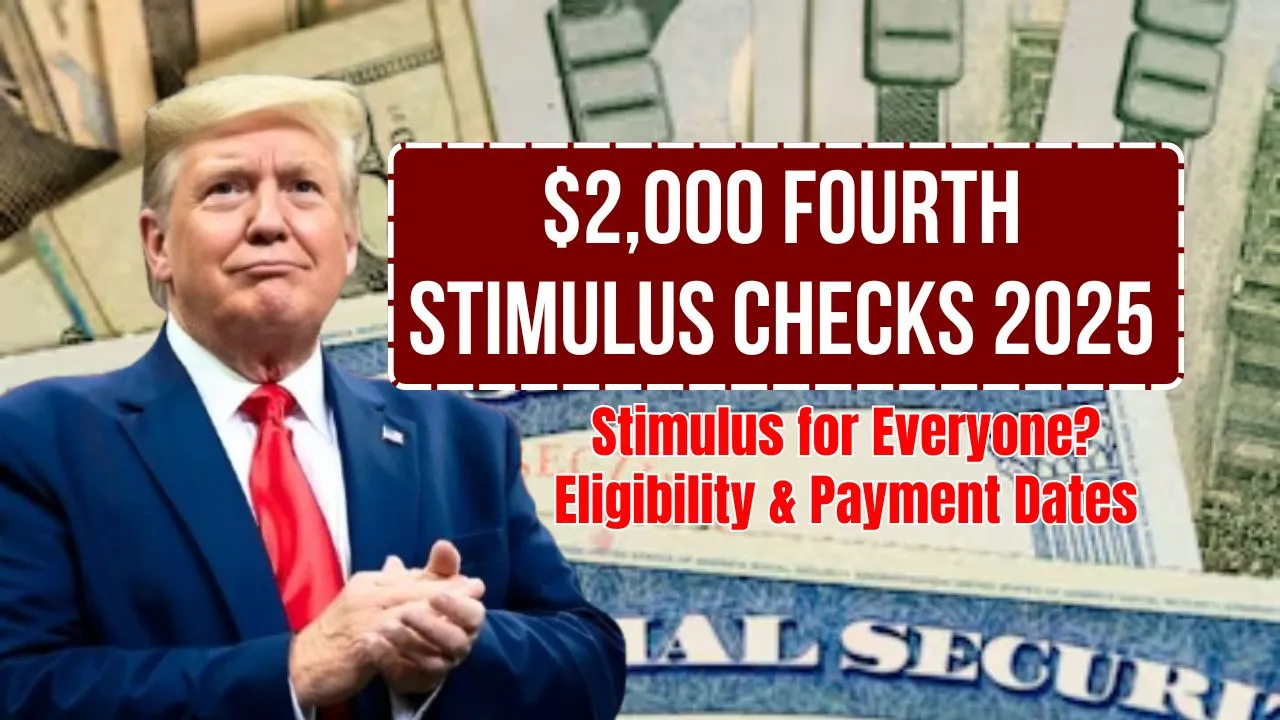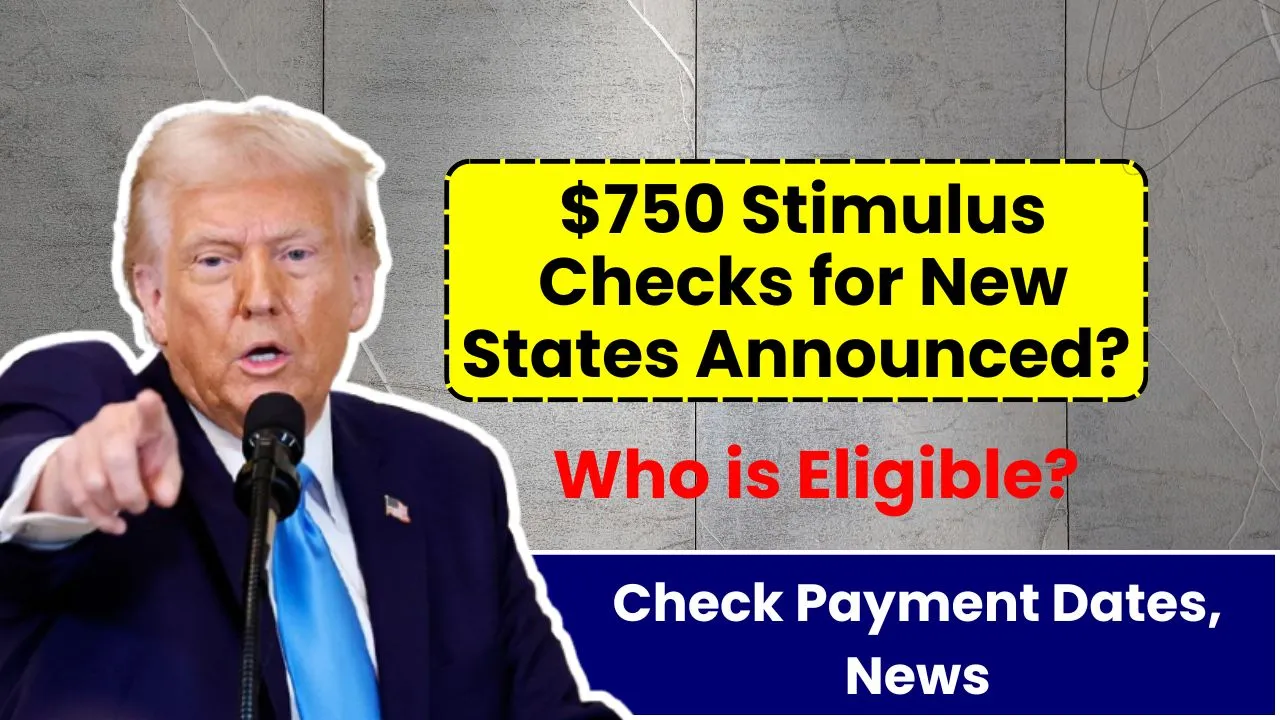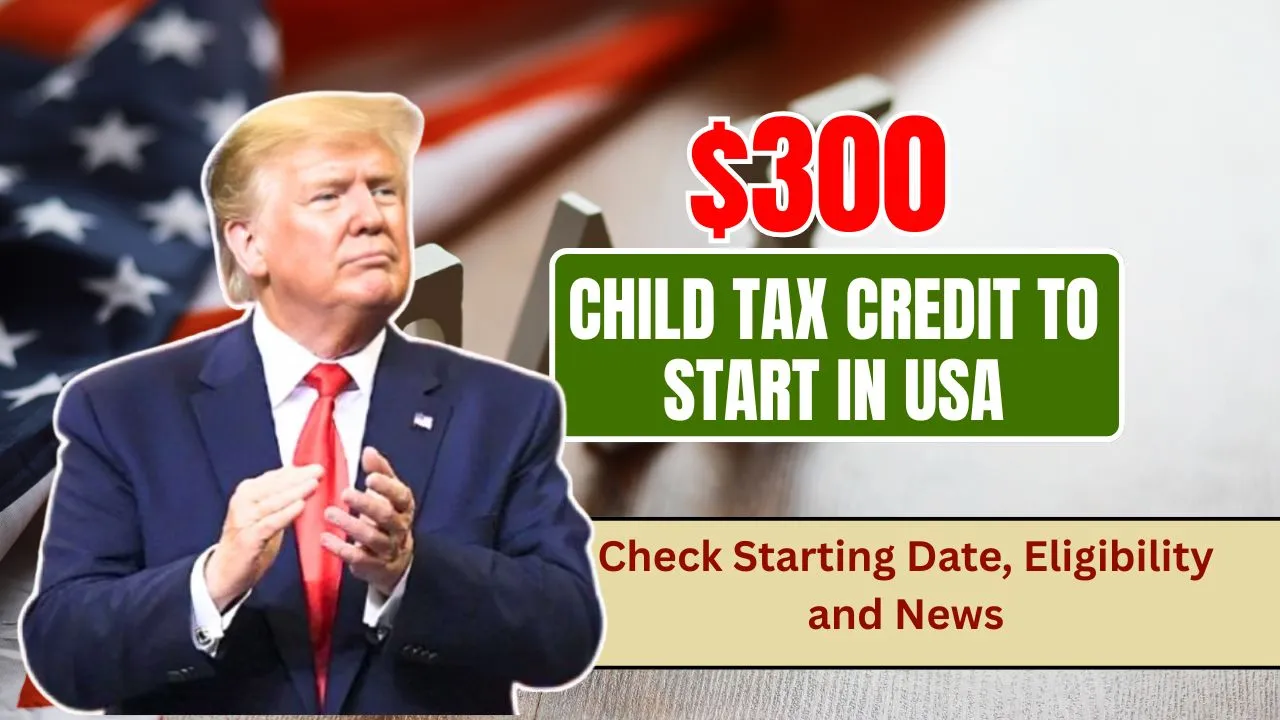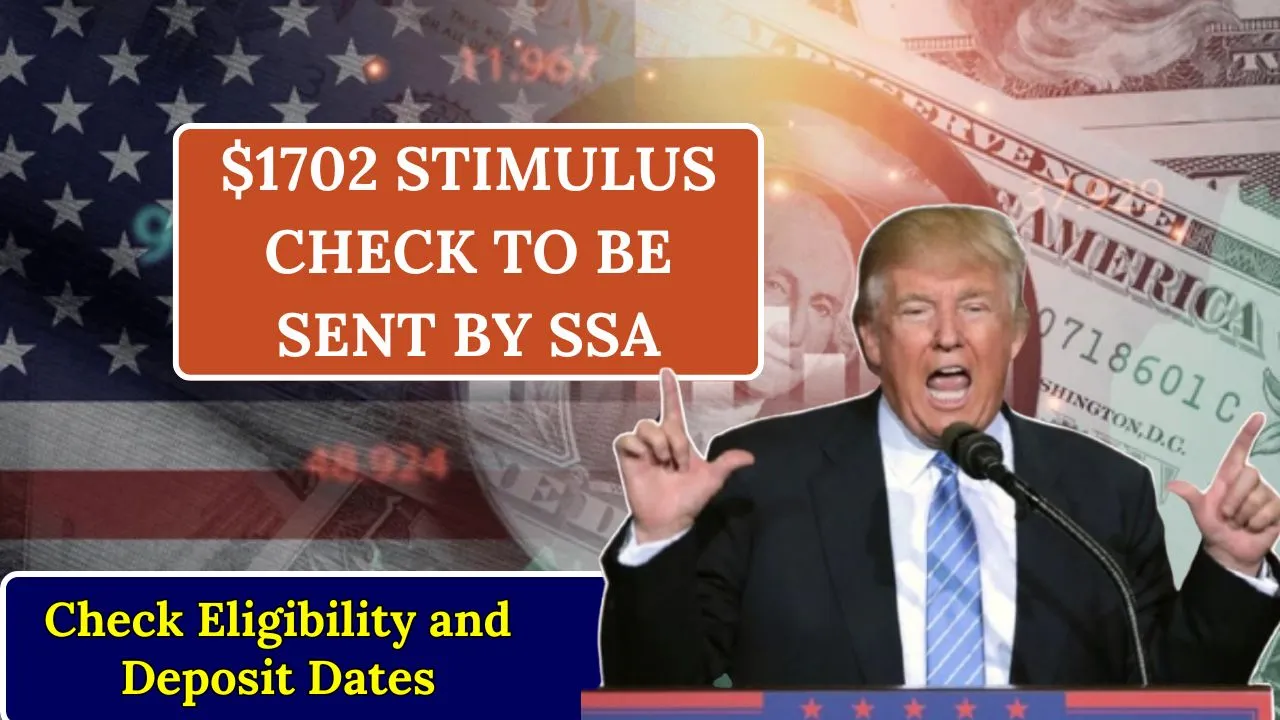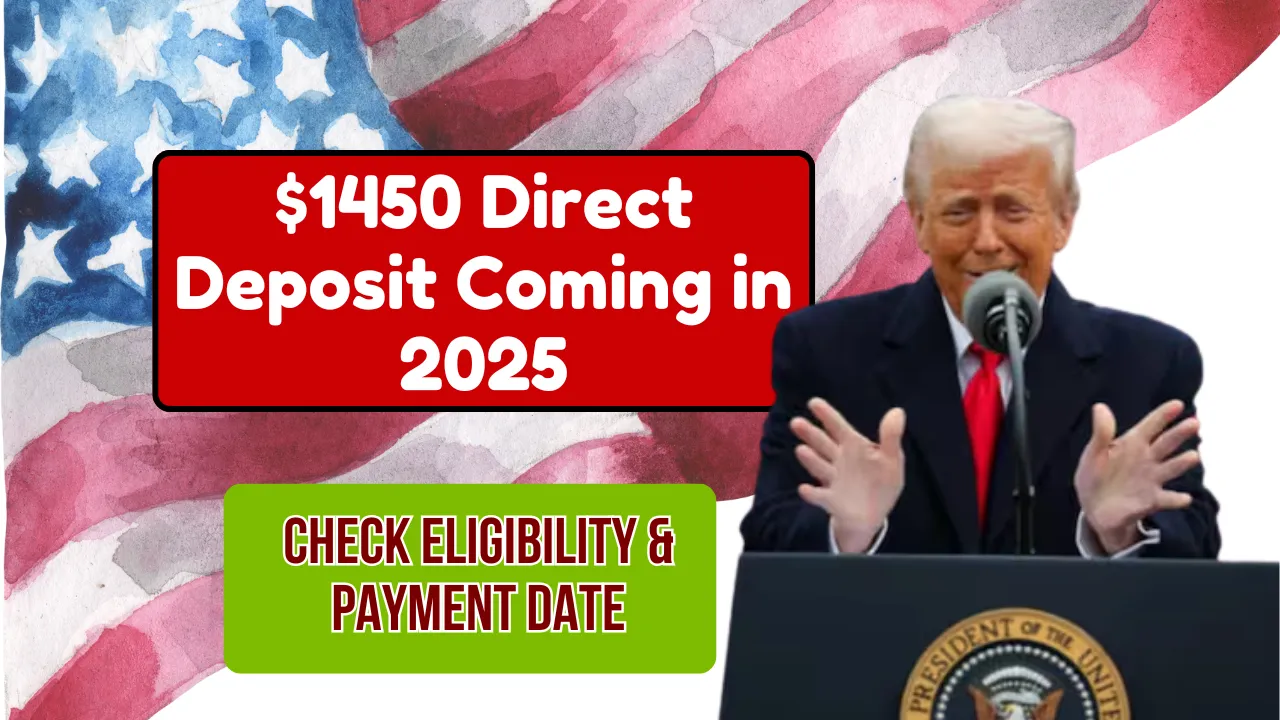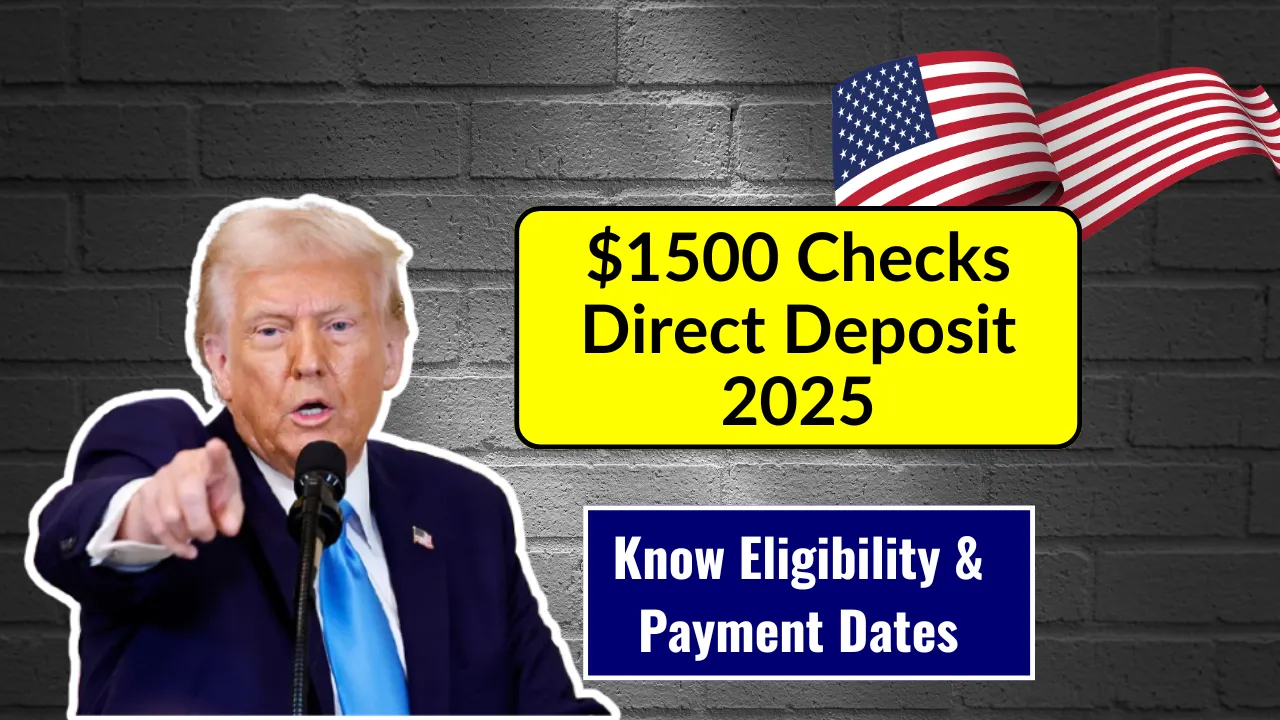$2000 Fourth Stimulus Checks 2025: Many Americans are still dealing with the financial impact of high food prices, rent increases, and rising utility bills. With inflation continuing to affect everyday living, discussions have picked up again in Washington around a potential $2,000 Fourth Stimulus Check. Though no official bill has been passed, the growing demand for financial relief has kept the topic alive in Congress and among American households.
If approved, the $2,000 Fourth Stimulus Checks 2025 could offer much-needed assistance to millions of low- and middle-income families. As lawmakers evaluate different solutions to support struggling citizens, the stimulus check is one of the strongest options being discussed. This article explains the eligibility criteria, possible payment dates, and what to expect if the stimulus doesn’t pass.
$2,000 Fourth Stimulus Checks 2025: What You Need to Know
The proposed $2,000 Fourth Stimulus Checks 2025 are designed to help families keep up with increasing costs and lingering debts from the pandemic era. While approval has not been confirmed, government leaders are seriously considering the financial burden many citizens are still facing. This proposal, if passed, could become another vital round of federal aid.
$2,000 4th Stimulus Checks 2025 Overview
| Program Name | IRS Fourth Stimulus Check |
| Authority | Internal Revenue Service (IRS) |
| Country | United States |
| Proposed Amount | $2,000 |
| Eligibility | Based on income and filing status |
| Payment Date | TBD (Possibly late 2025 or early 2026) |
| Payment Method | Direct deposit, paper check, or debit card |
| Official Website | www.irs.gov |
Eligibility Requirements for $2000 Fourth Stimulus Checks
If the $2,000 Fourth Stimulus Checks 2025 are approved, eligibility would likely be similar to previous stimulus rounds. Individuals and families must meet specific income and residency conditions:
- Individuals earning less than $75,000 per year may qualify.
- Married couples filing jointly should earn less than $150,000 annually.
- Heads of households might also qualify under adjusted limits.
- People receiving SSI, SSDI, or Social Security would likely receive payments automatically.
- Non-filers may need to update their personal and banking information with the IRS.
If these checks are confirmed, updating tax records and direct deposit information could help speed up the payment process.
$2,000 4th Stimulus Payment Schedule
As of now, no official payment schedule has been announced because no legislation has been finalized. However, if passed, experts believe payments could begin in late 2025 or early 2026, following a rollout pattern similar to the previous stimulus rounds.
The IRS would distribute payments through:
- Direct deposits (fastest method)
- Mailed checks
- Prepaid debit cards
To prepare, eligible individuals are encouraged to ensure their most recent tax return has been filed and that their contact and banking information is up to date on the IRS website.
What If the $2,000 Check Does Not Happen?
If Congress decides not to approve the proposed $2,000 Fourth Stimulus Checks 2025, there may still be alternative forms of support. These could include:
- Increased Child Tax Credit (CTC) payments
- Additional support through SNAP (food assistance)
- Expanded rental or housing relief
- Enhanced unemployment benefits for job seekers
Lawmakers may focus more on targeted support for families with children, low-income households, and individuals receiving disability benefits. While the $2,000 check is the most widely discussed option, these alternatives could provide meaningful help for millions.
Concerns About Future Stimulus Payments
During earlier stimulus rounds, many Americans receiving SSI, SSDI, or Social Security expressed concerns about being excluded or facing delays. These concerns have now become a part of the broader conversation in Washington, as lawmakers aim to ensure that future stimulus programs include all qualifying Americans, regardless of income source or employment status.
Leaders are increasingly aware of the need for inclusive financial aid that supports disabled individuals, seniors, and low-income earners—not just full-time employees. This shift in focus could influence how future relief programs are structured.
The Economic Impact of a Fourth Stimulus
One of the reasons the $2,000 stimulus is gaining attention again is its potential to stimulate the economy. Experts point out that when people have money to spend, it boosts consumer activity, supports local businesses, and even generates more tax revenue in the long term.
These payments could also help families:
- Pay down lingering debt
- Manage rising energy and utility costs
- Catch up on rent or mortgage payments
- Prepare for upcoming school and childcare expenses
In this way, the stimulus functions as both short-term relief and a long-term investment in economic stability.
FAQs
When could the $2,000 Fourth Stimulus Check payments start?
If approved, payments could begin in late 2025 or early 2026, depending on when the bill passes.
What happens if the $2,000 check doesn’t get approved?
If the check is denied, citizens may still receive expanded support through tax credits, food programs, or housing relief.
Is the $2,000 Fourth Stimulus Check approved yet?
No, the check is still under discussion, and no official bill has been passed yet.
Will Social Security and SSDI recipients qualify
Yes, based on past rounds, they would likely receive payments automatically if approved
How will the money be sent?
Payments would be distributed by the IRS via direct deposit, paper checks, or debit cards.
Final Thought
The $2,000 Fourth Stimulus Checks 2025 may not be confirmed yet, but they reflect an ongoing concern shared by millions of Americans: the need for financial relief amid high costs and economic uncertainty. While Congress debates its approval, individuals should take proactive steps like filing taxes, updating personal information with the IRS, and staying informed through official channels.
Even if this stimulus doesn’t happen, other programs may offer assistance. To avoid confusion or falling for scams, always rely on trusted sources like irs.gov for updates. Keep your finances prepared—and stay alert for official announcements in the months ahead.
